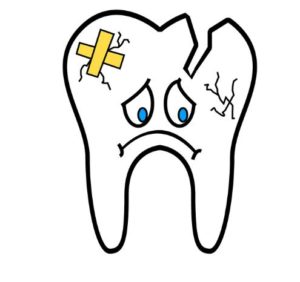People today come with different views concerning water fluoridation and its effects. Since the rise of controversies surrounding it, different states stopped fluoridating their tap water. This makes the rest who are undecided or confused as to how bad fluoride is and what it is really.
Fluoride is from fluorine which is a natural element found in the soil, water and foods that we eat. It is responsible for blocking bacterial growth and infections in the mouth. It is used in creating toothpastes, mouthwashes and other dental products. Water authorities have added fluoride to their municipal water supplies as a way of preventing cavities and tooth decay; and avoiding costly dental treatments for citizens that are not well off or have a hard time paying for dental procedures. Its main aim was to lower the risk of tooth decay in their respective municipalities to benefit the bigger number of the population. The population who can’t go on regular check-ups and the likes. The concerns about adding fluoride to the water supply rose when studies were made and led to the discovery of the negative effects of fluoride to the body.
Here are the findings too much exposure to fluoride.
Dental Fluorosis. This occurs in developing children as characterized by the hypo mineralization of their tooth’s enamel. Ingesting too much fluoride as a child can lead to streaks of white in the teeth or teeth discoloration as these stages are the starting phase of enamel formation. This effect is irreversible but your dentist can give treatments to manage the entire appearance of the damaged teeth. This is usually not a threat to the tooth’s health but mostly on its appearance.
Skeletal Fluorosis. This type of disease cause painful damage that occurs in the joints and bones in severe cases. It also makes the bones stiff and less elastic which makes sufferers more prone to bone fractures and mobility.
Fluoride Poisoning. The excessive amounts of fluoride ingested could cause abdominal pain, nausea and vomiting, seizures and muscle spasms. Although this is not likely to happen if you drink tap water, this could only happen if there were accidental contamination of the drinking water in your community.
The true intention of making communities free from tooth decay, cavities and other dental problems is great and well. It benefits the public and is a natural way of addressing dental health issues. The likelihood of ingesting large quantities of fluoride is also concerning. That’s because you may put your dental health and over-all health in the line. Thanks to fluorosis.
Every individual is entitled to have their own say about this issue. In suggested amounts or levels, fluoride is a very helpful element in dental and oral health. The bottom line is that anything in excess is always bad. People should speak to their dentists if they are experiencing symptoms of ingesting too much fluoride and one must not add fluoride supplements or products without the doctor’s permission.

